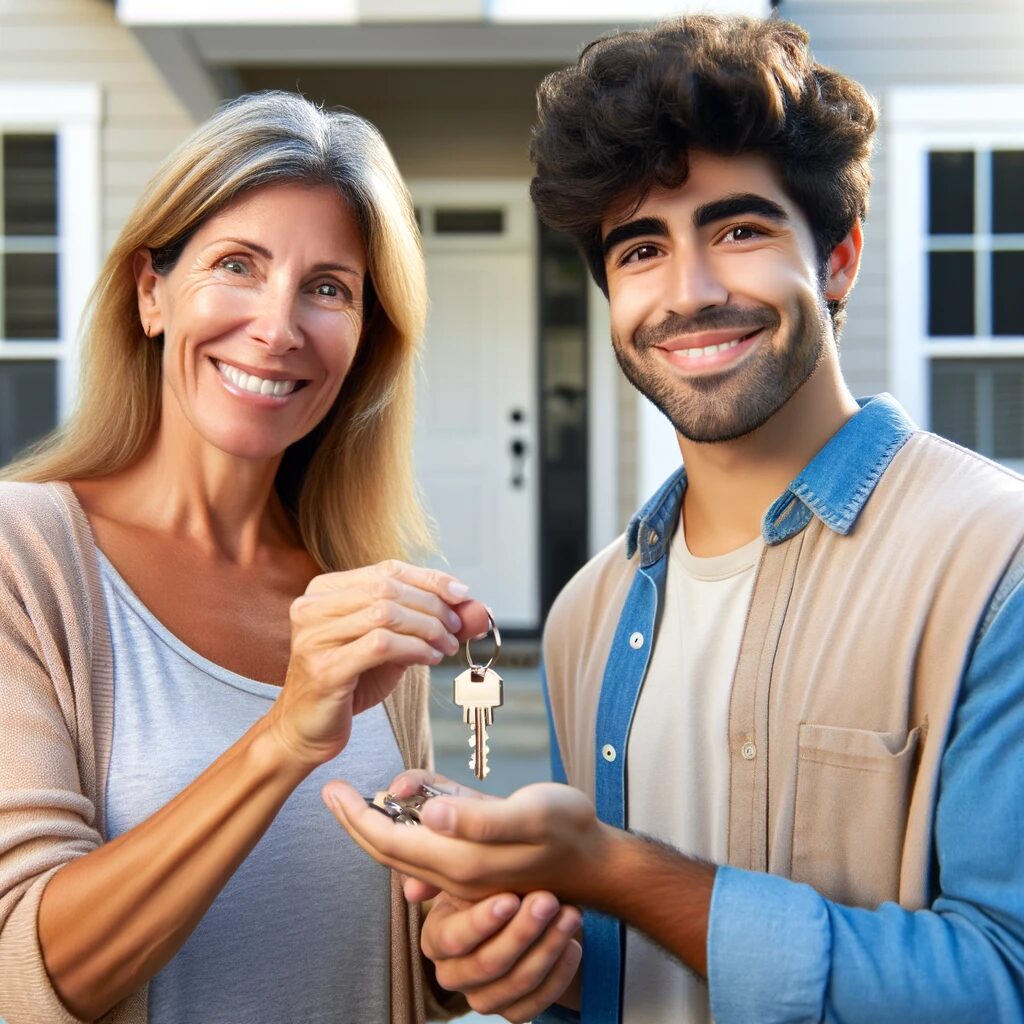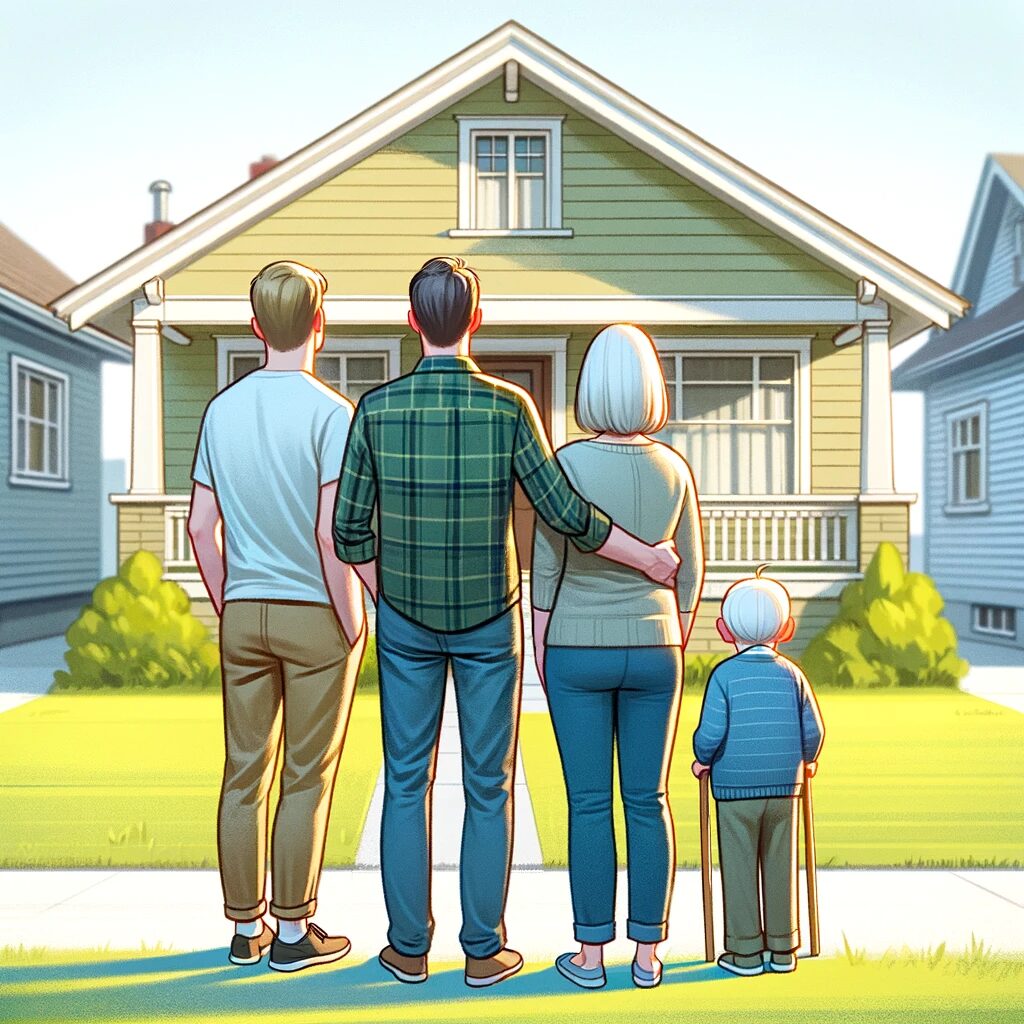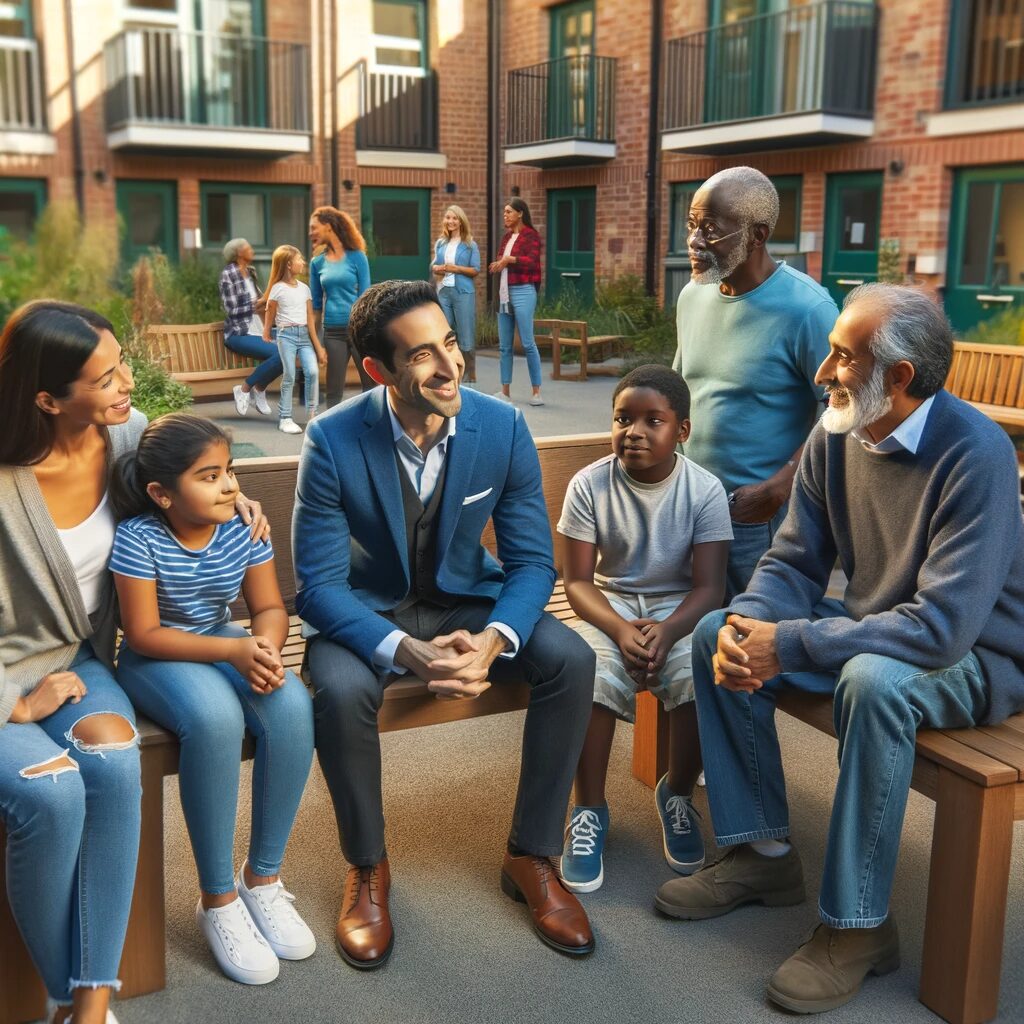When we think about renting a home, our focus often narrows to the physical space: its location, amenities, and design. However, there’s another crucial aspect that significantly impacts our rental experience — the landlord. The role of a landlord extends far beyond the mere transactional duties of renting out a property. It involves fostering a positive living environment, ensuring comfort, and building a relationship based on trust and respect. But what truly sets apart a good landlord from the rest? This article delves into the key characteristics that define excellence in landlordship. Drawing on insights from renters’ experiences, we explore how good landlords meet and exceed expectations, balance fairness with professionalism, respect privacy, respond adaptively to issues, and contribute to creating a harmonious community. These elements not only highlight the best practices in property management but also reveal the human touch that makes a rental feel like home.

Meeting and Exceeding Expectations
In the realm of property management, a good landlord is often distinguished by their ability to align with tenant expectations and even surpass them, particularly in challenging situations. This alignment begins with the basics: providing a property and service that matches what was initially advertised. However, it’s in times of crisis where a great landlord truly shines, going “above and beyond” their contractual obligations to solve problems for their tenants.
The concept of exceeding expectations also manifests in fair pricing and property maintenance. A good landlord charges a reasonable rent for a well-maintained property, ensuring that it’s clean, safe, and in line with what was promised during the tenancy agreement. This practice builds a foundation of trust and reliability, which is crucial in any landlord-tenant relationship.
Experience and knowledge also play a significant role. A landlord with a good grasp of tenant laws and a comprehensive lease that covers all bases sets a professional tone. The ability to make small repairs or have a network of professionals for emergencies demonstrates preparedness and responsibility. Furthermore, the best landlords are those who tend to repairs when needed but otherwise maintain a respectful distance, ensuring tenant privacy and autonomy.
Finally, allowing flexibility within reason, such as permitting personal touches to the property, can make a significant difference. This flexibility indicates an understanding that a rental property is not just an asset but a tenant’s home. It’s a gesture that resonates deeply with tenants, making them feel valued and respected.

Balancing Fairness and Professionalism
At the core of being a good landlord lies the delicate balance between fairness and professionalism. This balance is pivotal in cultivating a healthy, long-term relationship with tenants. A hallmark of fairness is charging a reasonable rent for a clean, well-maintained property. This approach not only respects the tenant’s financial constraints but also demonstrates a commitment to providing value.
Professionalism in landlordship is equally vital. It entails a respectful and business-like approach to interactions with tenants. Professional landlords understand their responsibilities under tenancy laws, ensuring that all practices are lawful and equitable. This professionalism extends to being responsive to tenant problems and issues, addressing them promptly and efficiently.
Moreover, maintaining a professional distance is crucial. The best landlords are those who are heard from only when necessary. This respect for privacy and autonomy allows tenants to truly feel at home, without the overbearing presence of the landlord. Regular, unannounced visits can be invasive and detrimental to building trust.
Another aspect of balancing fairness with professionalism is not increasing the rent arbitrarily. Good landlords understand the importance of stability for their tenants and avoid hiking up the rent without valid reasons. This practice fosters a sense of security and loyalty among tenants.
In summary, a good landlord achieves a perfect blend of being fair and professional, thereby creating a harmonious rental experience for both parties.

Building Trust and Respecting Privacy
A key component of a good landlord-tenant relationship is the cultivation of trust and respect for privacy. Trust is built over time and is rooted in consistent, honest communication and actions. A landlord who respects the tenant’s privacy and autonomy fosters a sense of security and respect. This means not entering the tenant’s home without permission and avoiding unnecessary disturbances.
Effective communication is a cornerstone of building trust. A landlord who is clear, transparent, and respectful in their interactions establishes a foundation for a positive relationship. This involves being upfront about any potential disruptions, like maintenance work, and providing adequate notice before such occurrences.
Another aspect of trust-building is acknowledging and appreciating good tenants. When landlords recognize tenants who care for the property and fulfill their lease obligations, it creates a reciprocal relationship of loyalty and respect. A landlord who values their tenant as a person, not just a source of income, contributes significantly to a trusting and positive living environment.
Additionally, addressing noise complaints and other disturbances seriously shows that the landlord values the tenant’s comfort and right to peaceful living. This attentiveness to tenant needs and concerns further strengthens the trust between both parties.
In essence, a good landlord understands that building trust and respecting privacy are integral to a successful and lasting landlord-tenant relationship, ultimately leading to a more harmonious living experience for everyone involved.

Adaptability and Responsiveness
Adaptability and responsiveness are crucial traits of a good landlord. These qualities are especially important when it comes to addressing maintenance issues and responding to tenant needs. A landlord who is quick to address problems, whether it’s a broken appliance or a maintenance request, shows that they value their tenant’s comfort and well-being.
Being adaptable also means allowing reasonable changes to the property. This could include allowing tenants to personalize their space, such as painting walls or hanging pictures, as long as it doesn’t cause significant damage. This flexibility shows an understanding that a rental is not just a property, but a home for the tenant.
Responsiveness extends beyond just fixing problems. It includes being available and approachable for any concerns or questions tenants may have. A landlord who provides their personal contact number for emergencies and responds promptly is seen as more reliable and trustworthy.
Moreover, a good landlord doesn’t arbitrarily raise rent or change terms without proper justification or notice. This stability and predictability in rent and lease terms are crucial for tenants, particularly in longer-term rentals.
In summary, adaptability and responsiveness in a landlord demonstrate a commitment to providing a positive living experience and fostering a respectful and supportive landlord-tenant relationship.
Creating a Sense of Community and Well-being

A good landlord recognizes that their role extends beyond property management to fostering a sense of community and well-being among their tenants. This involves creating an environment where tenants feel connected, supported, and valued. Landlords who achieve this often go beyond contractual obligations, offering gestures that enhance the living experience of their tenants.
Community building can take various forms. It might involve organizing social events for tenants, ensuring communal areas are well-maintained, or even something as simple as introducing tenants to each other. These actions help create a friendly, welcoming atmosphere, where tenants feel more than just occupants; they feel like part of a community.
Well-being is also about ensuring the tenants feel safe and heard. A good landlord actively listens to tenant concerns, whether they’re related to maintenance, security, or neighborly issues, and takes appropriate actions. This responsive attitude shows tenants that their well-being is a priority.
Additionally, good landlords often provide amenities and services that contribute to the tenants’ comfort and convenience. This could include regular maintenance checks, offering recycling and waste management solutions, or providing information about local resources and services.
Ultimately, creating a sense of community and well-being is about cultivating a living environment where tenants feel at home, respected, and part of a larger community, thereby enhancing their overall quality of life.
In exploring the multifaceted role of a landlord, it becomes clear that excellence in landlordship transcends the basic duties of property management. A truly good landlord embodies qualities such as fairness, professionalism, trust, responsiveness, and a commitment to community building. These traits not only ensure a well-maintained and functional living space but also foster a sense of belonging and well-being among tenants.
By meeting and exceeding expectations, balancing fairness with professionalism, building trust and respecting privacy, being adaptable and responsive, and creating a community-focused environment, landlords can significantly enhance the rental experience. This approach results in mutually beneficial relationships, where tenants feel valued and landlords enjoy the rewards of a well-managed property and a loyal tenant base.
Ultimately, the essence of being a good landlord lies in recognizing that a rental property is more than just a building; it’s a home for those who live there. It’s about creating a space where tenants feel safe, respected, and part of a community. As we have seen, landlords who adopt this perspective not only succeed in their business endeavors but also contribute positively to the lives of their tenants, creating a lasting impact far beyond the confines of the rental agreement.
